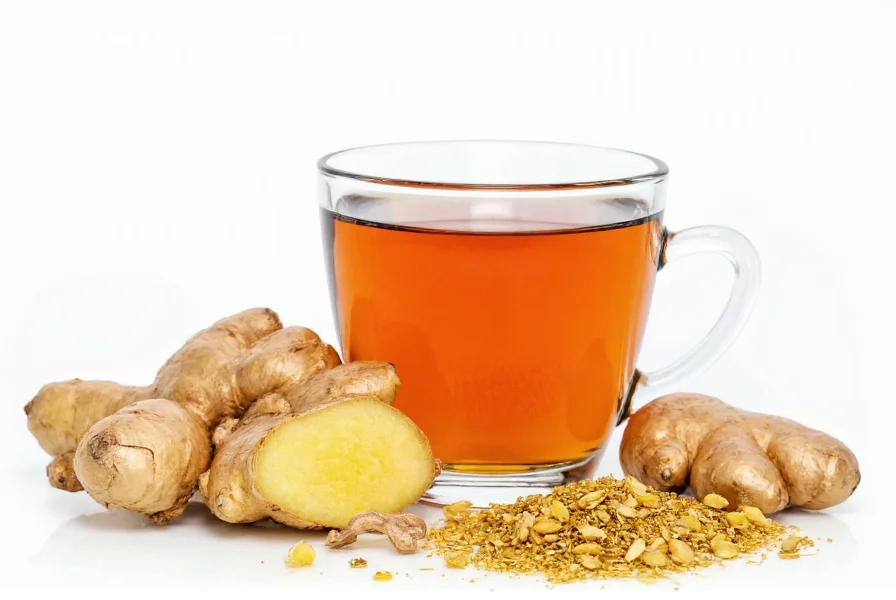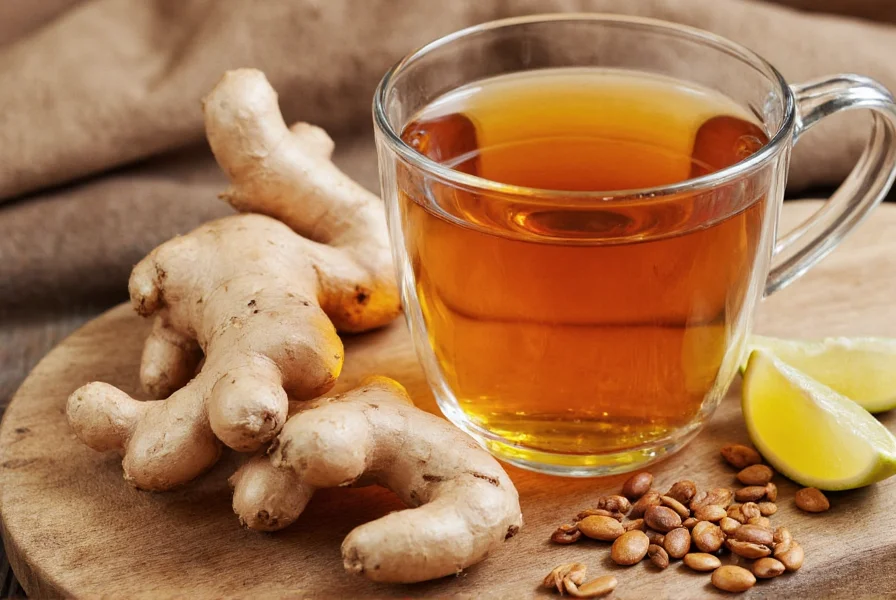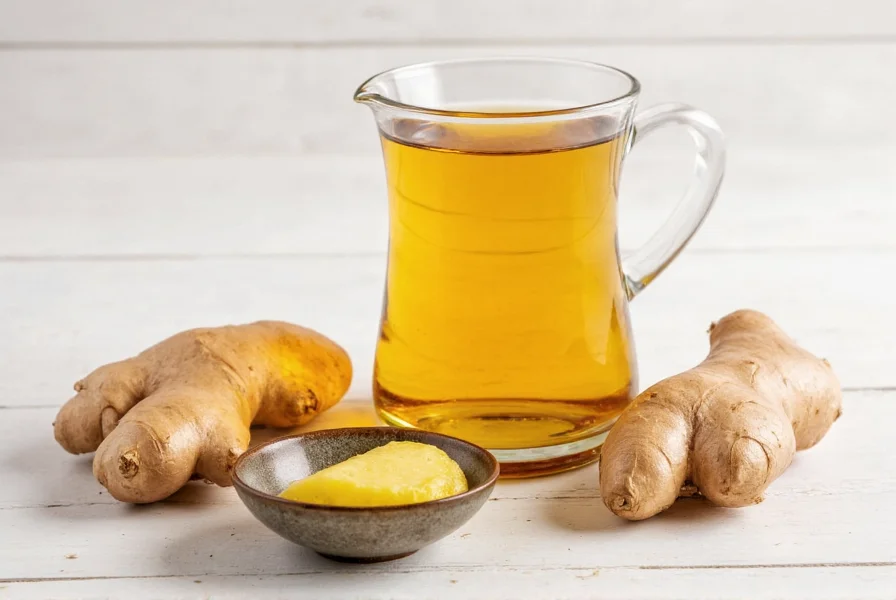Ginger and tea have been combined for centuries across various cultures, creating a beverage that offers both comforting warmth and potential health advantages. Unlike traditional teas from the Camellia sinensis plant, ginger tea is technically an herbal tisane, making it naturally caffeine-free while delivering unique bioactive compounds like gingerols and shogaols.
The Science Behind Ginger Tea Benefits
Modern research supports many traditional uses of ginger. The primary bioactive compounds in ginger—gingerols and shogaols—demonstrate significant anti-inflammatory and antioxidant properties. A 2020 review published in Nutrients analyzed multiple clinical trials showing ginger's effectiveness in reducing nausea, particularly for pregnancy-related morning sickness and chemotherapy-induced nausea.
For digestive health, ginger appears to accelerate gastric emptying. A study in the World Journal of Gastroenterology found that participants who consumed ginger tea experienced 25% faster stomach emptying compared to placebo, potentially explaining its traditional use for indigestion and bloating.
| Health Benefit | Scientific Support Level | Key Research Findings |
|---|---|---|
| Nausea reduction | Strong | Multiple studies show 1-1.5g ginger reduces nausea symptoms by 30-40% |
| Anti-inflammatory effects | Moderate | Gingerols inhibit inflammatory pathways; comparable to low-dose NSAIDs |
| Digestive support | Moderate | Accelerates gastric emptying by 25% in clinical studies |
| Immune system support | Preliminary | Laboratory studies show antimicrobial properties; human evidence limited |
Traditional Preparation Methods
How to make ginger tea properly affects both flavor and potential benefits. The traditional method involves:
- Peeling and thinly slicing 1-2 inches of fresh ginger root
- Simmering in 2 cups of water for 10-15 minutes (longer for stronger tea)
- Straining and optionally adding lemon or honey
The simmering time significantly impacts the resulting compounds. Shorter brewing (5-10 minutes) preserves more gingerols, while extended simmering (15+ minutes) converts these to shogaols, which are more pungent but may offer different health properties.

Ginger Tea Variations and Combinations
While pure ginger tea delivers potent flavor and benefits, many cultures enhance it with complementary ingredients:
- Ginger green tea blend: Combines the antioxidants of green tea with ginger's digestive benefits
- Ginger turmeric tea: Creates a powerful anti-inflammatory combination often with black pepper to enhance absorption
- Ginger lemon honey tea: Adds vitamin C and soothing properties, particularly popular during cold season
- Ginger mint tea: Mint complements ginger's heat while providing additional digestive support
When combining ginger with other teas, the optimal water temperature matters. While ginger benefits from boiling water, more delicate teas like green or white tea require slightly cooler water (160-185°F) to prevent bitterness.
Potential Side Effects and Considerations
Ginger tea is generally safe for most people when consumed in moderate amounts (up to 4 grams of ginger daily). However, certain considerations apply:
- May interact with blood-thinning medications like warfarin
- Potentially increases acid reflux in sensitive individuals
- Should be consumed cautiously during pregnancy (consult healthcare provider)
- May lower blood sugar levels, relevant for diabetes management
A 2021 review in Food Science & Nutrition noted that while ginger tea is well-tolerated by most, excessive consumption (more than 5 grams daily) could cause mild gastrointestinal discomfort in some individuals.

Maximizing Benefits: Practical Tips
To get the most from your ginger tea experience:
- Use fresh ginger rather than powdered for higher gingerol content
- Crush or mince ginger before brewing to release more bioactive compounds
- Add a small amount of healthy fat (like coconut milk) to enhance absorption of fat-soluble compounds
- Consume before meals for optimal digestive benefits
- Store fresh ginger in the freezer for extended shelf life
For those seeking ginger tea for specific purposes, timing matters. Consuming ginger tea 20-30 minutes before travel may help prevent motion sickness, while drinking it after meals supports digestion. The optimal ginger tea for nausea typically uses freshly grated ginger simmered for 10-15 minutes.
Frequently Asked Questions
How much ginger tea is safe to drink daily?
Most research suggests 2-4 grams of ginger daily is safe for adults, equivalent to 1-2 cups of strongly brewed ginger tea. The European Food Safety Authority considers up to 2 grams of ginger extract safe daily. Those with medical conditions or taking medications should consult their healthcare provider before regular consumption.
Can ginger tea help with weight loss?
While ginger tea alone won't cause significant weight loss, research suggests it may support weight management efforts. A 2019 study in Complementary Therapies in Medicine found that ginger supplementation increased thermogenesis and reduced feelings of hunger. Ginger tea can be a valuable addition to a weight loss plan as a low-calorie beverage that may modestly boost metabolism and reduce appetite.
When is the best time to drink ginger tea?
The optimal timing depends on your goals. For digestive support, consume 20-30 minutes before meals. For nausea prevention (like morning sickness or motion sickness), drink 30-60 minutes before the expected trigger. Many people enjoy ginger tea in the morning for its invigorating properties, while others prefer it in the evening for its soothing warmth. Those sensitive to ginger's mild stimulating effects might avoid it close to bedtime.
Does ginger tea contain caffeine?
Pure ginger tea is naturally caffeine-free as it's an herbal tisane made from ginger root, not from the Camellia sinensis plant. However, blends combining ginger with black, green, or white tea will contain caffeine. Always check ingredient labels if you're avoiding caffeine, as many commercial 'ginger teas' include traditional tea leaves.











 浙公网安备
33010002000092号
浙公网安备
33010002000092号 浙B2-20120091-4
浙B2-20120091-4